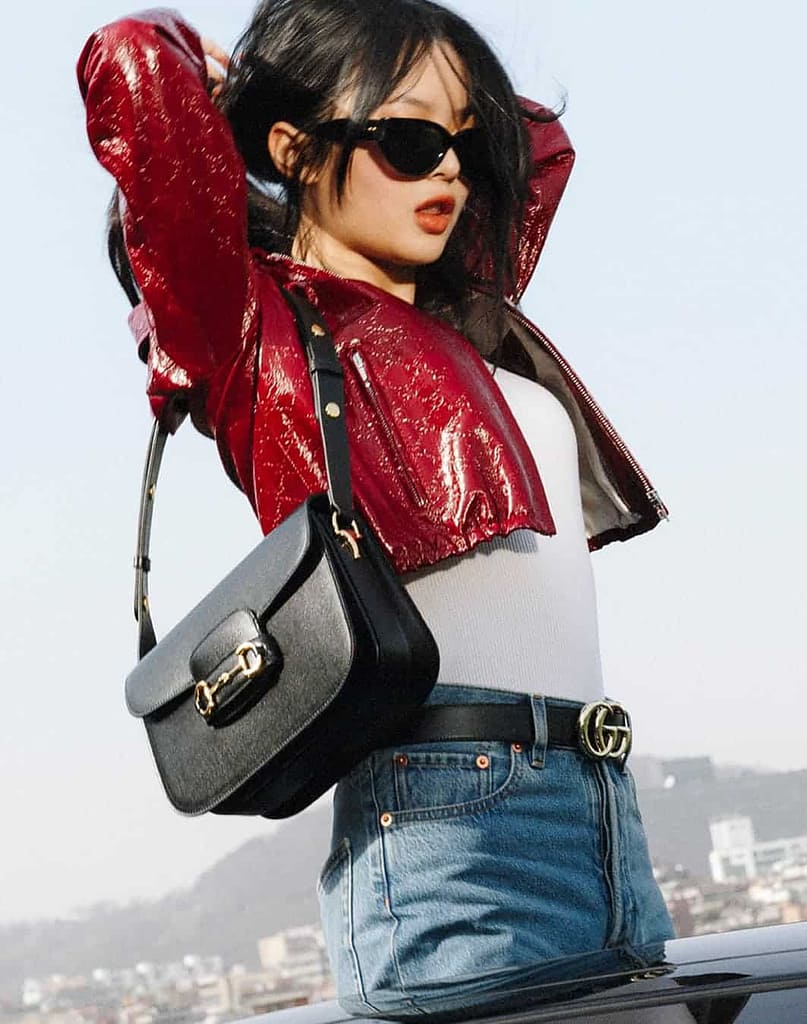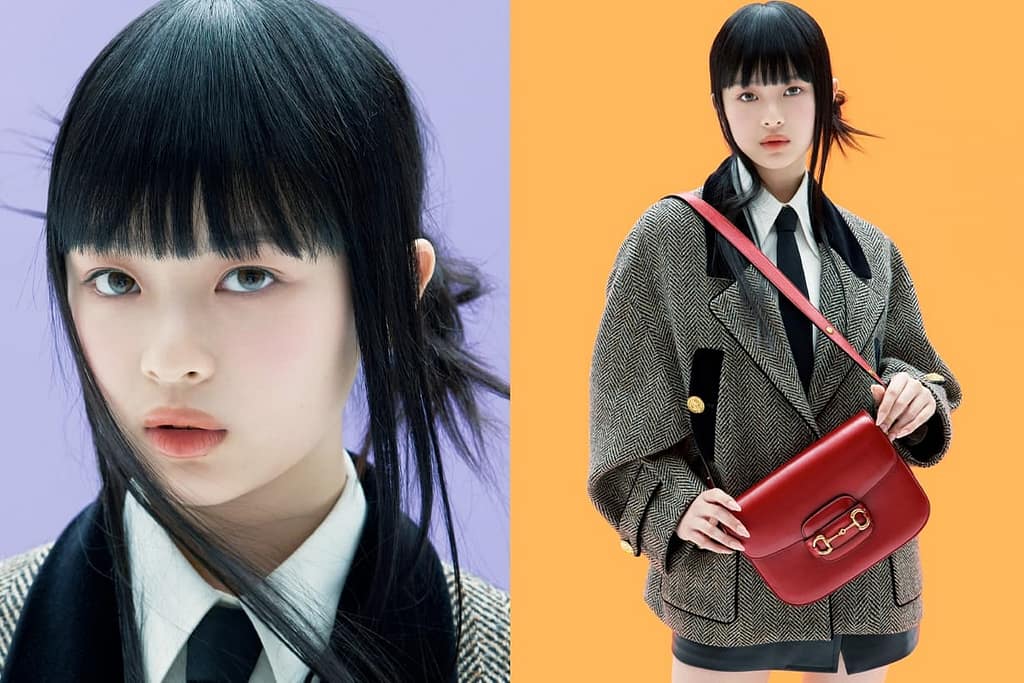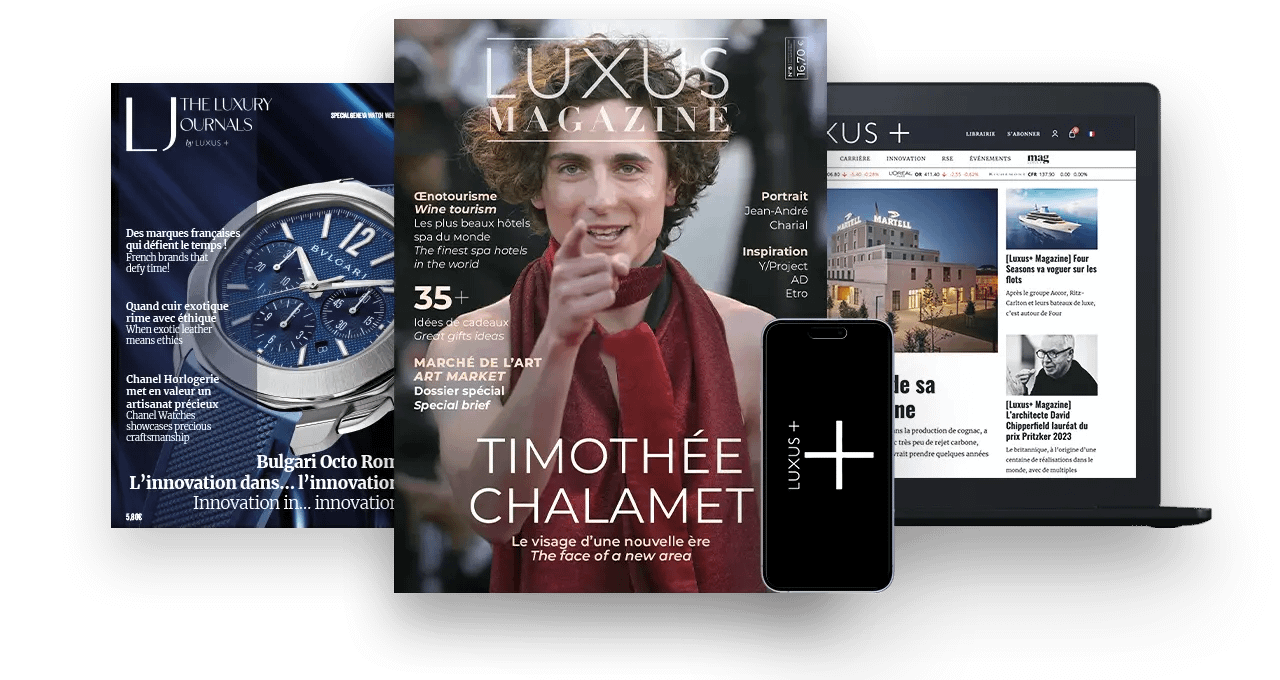Gucci has once again called on Hanni, a member of the k-pop group Newjeans, to embody its Horsebit 1955 bag and, above all, its Horsebit 1953 loafer. Gucci’s global ambassador since 2022, the singer is expected to help the Italian House find its audience in Asia-Pacific as well as rejuvenate the brand.
To revitalize its image, Gucci is calling on the icons of its equestrian heritage, as well as on the artists of today’s youth, with Generation Z at the forefront.
For this, the Florentine fashion house once again called on singer and dancer Hanni, one of the five members of the Newjeans group.
In the midst of a desirability crisis, Gucci is hoping with Sabato de Sarno to recapture its past growth, by giving greater prominence to its accessories range and, more particularly, its shoe collections.
Glamorizing the moccasin
Particularly influenced by the equestrian world, the House of Gucci has preserved a timeless symbol: the horsebit. A stylistic detail that appeared on the first pair of moccasins in 1953 and was worn by older generations.
This distinctive element, in the form of a double ring and a bar, was also applied to the world of leather goods in 2020 with the Horsebit 1955 bag.
Gucci has now unveiled its new campaign dedicated to the bag, featuring this iconic detail in three material finishes in the colors of Gucci Rosso Ancora. Alongside the burgundy red, brought back to the fore by Sabato de Sarno, there are also brown, black and cream tones. These are all exclusive models reserved for the Korean market, considered the world’s 5th largest luxury market.
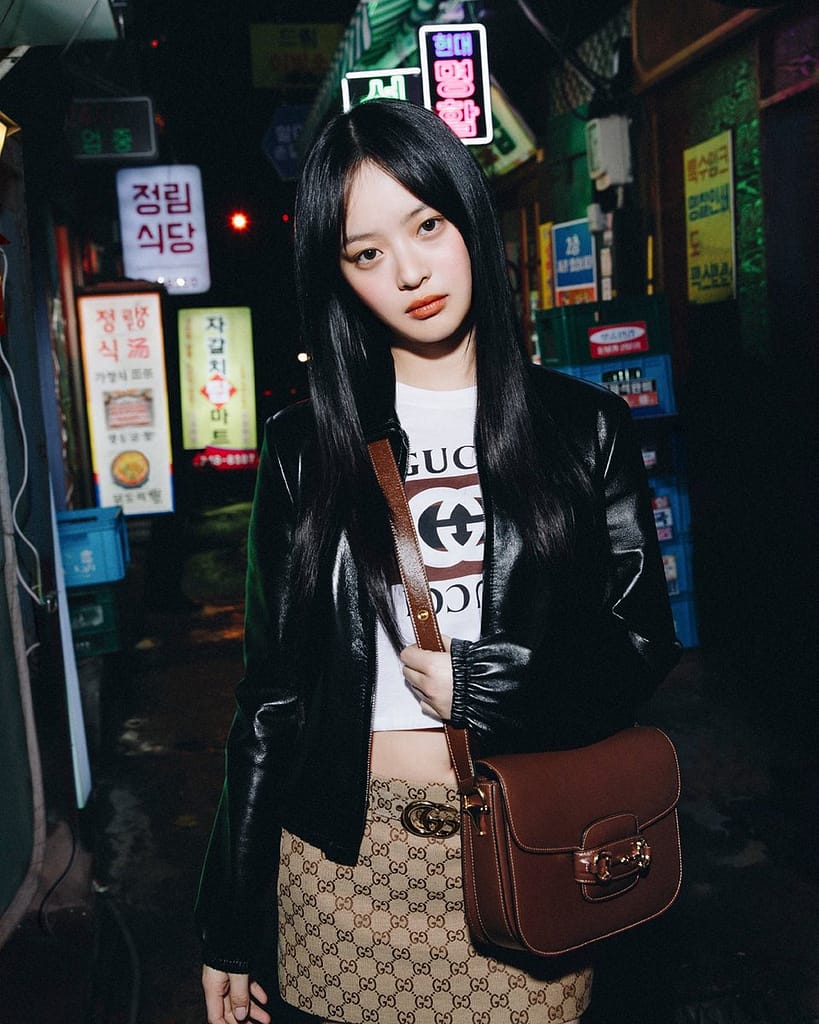
But the great novelty of this campaign, embodied for the second time by singer-songwriter Hanni (the first was in 2023), is the presence of the bit moccasin, the Maison’s historic icon. With her effortless style, Hanni becomes one of the first ambassadors of the Florentine House to pose with the famous shoe on her feet. An inclusivity that shows Gucci’s intention to capitalize on the model’s unisex style, playing on the masculine and feminine codes so dear to Generation Z.
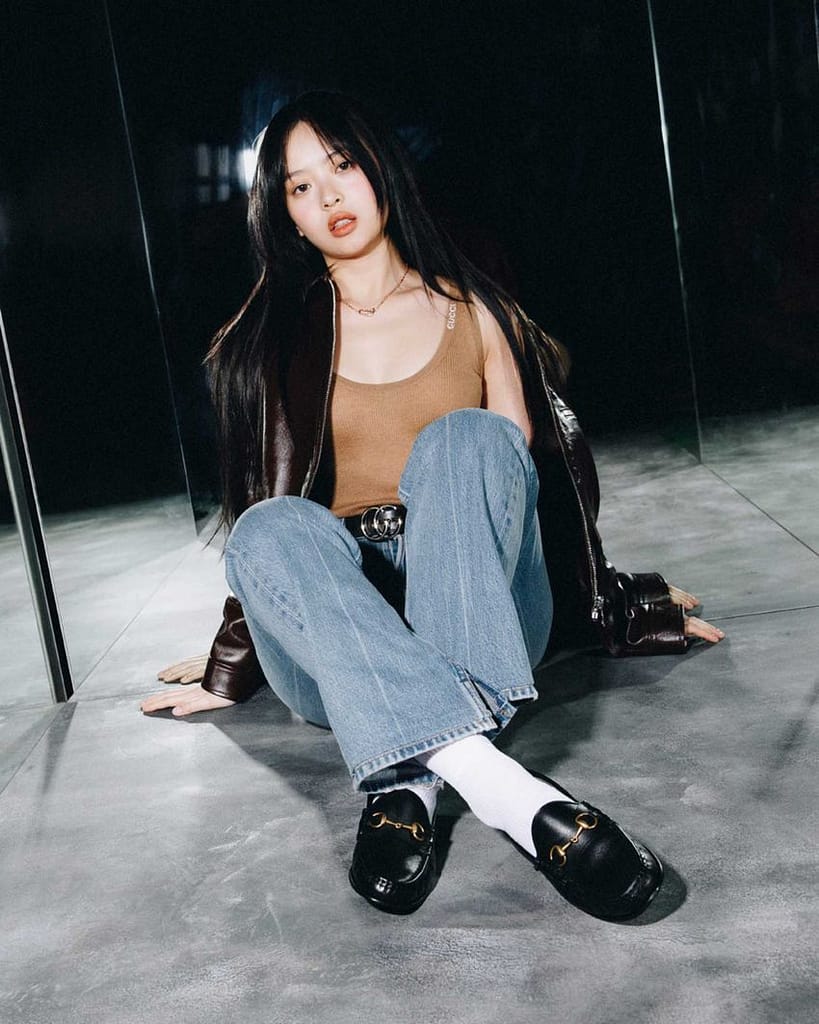
To revive the House’s tradition and craftsmanship, Gucci chose to set down its luggage in Seoul. Photographer Tyrell Hampton swapped the monochrome pop palettes of the previous horsebit 1955 campaign for an urban setting of quaint record stores, panoramic rooftops and neon-lit storefronts that make up the identity of the bustling South Korean capital.
Mocked for its strategic ambiguity, oscillating since Tom Ford (who left in 2004) between luxury and fashion, Gucci seeks here to benefit from the historical roots and timeless style of its Horsebit collections to reinforce its credibility as a luxury heritage brand. Gucci has in the past been one of the models for luxury brand turnarounds, managing to triple its sales between 2015 and 2019 thanks to the maximalist bohemian chic stylistic proposals of Alessandro Michele, its previous creative director, as well as his highly personal historicist vision of fashion. He has made “Reconception”, the intentional imitation of things from the past, one of the pillars of his success.
A strategic cultural bridge
Over the last five years, luxury brands have understood the benefits of capitalizing on a cultural product as sophisticated as K-pop, especially in the era of the Chinese market slowdown and entertainment’s intrusion into the economic sphere.
A veritable South Korean phenomenon that has gone global, this cultural and musical patchwork is also a particularly effective bridgehead for Western brands seeking to break into a market as fragmented and culturally diverse as the Asia-Pacific region (excluding Japan). Artists such as BLACKPINK and Stray Kids have set the standard in many Asian countries, with their aesthetics, image, sound, lyrics and close relationships with their fan communities on social networks.
Hanni is the fruit of this successful melting pot: officiating in a South Korean band, the 19-year-old artist is nevertheless of Vietnamese origin and, born in Melbourne, of Australian nationality. The Newjeans group was the first k-pop group just formed (July 2022) to see all its members representing different luxury brands.
At the time of Hanni’s appointment as ambassador, Gucci explained that it had chosen her for “her electric stage presence and distinct sense of style. Her magnetic charisma, confidence and authenticity embody the values of Gucci.”
A global ambassador for the Italian House since 2022, Hanni has not only been spotted on the front row of catwalks or in advertising campaigns: her role was extended to the Gucci Beauty universe last March.
The choice of Hanni reflects Gucci’s desire to free itself from its heavy dependence on the Chinese market (up to 30% of its sales, double that of its competitors Louis Vuitton and Hermès), which is slow to recover, while targeting an underestimated mature luxury market, Australia, and an emerging market, Vietnam.
With this new Horsebit campaign, the Italian fashion house intends to target more than just the Korean market: the new Asian Dragons, where K-pop groups are on a roll: Vietnam, but also Indonesia, Malaysia and the Philippines. As we saw in a previous survey, K-pop is recognized as being of transnational interest and, by extension, pan-Asian for luxury brands.
Read also > [INVESTIGATION] SOUTH KOREA: WHEN WESTERN LUXURY WOOS K-POP (PART 1/5)
Featured Photo: © Gucci



























